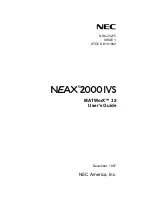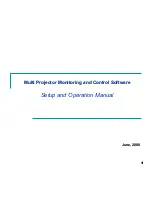
144
Defining trunk module types and settings
N0008589 3.3
5
Check the settings to ensure they reflect the line requirements. Note that only some of the
fields appear for all module types.
Refer to the following table for a description of each field.
Table 12
Module record values
Attribute
Value
Module/line type
Module mode DS/CLID, Global,
Legacy
Loop
•
DS/CLID: displays for old North American LS/DS or CLID analog trunk modules, the old analog
MBM, or the GATM with North American DIP switch settings.
•
Global: displays for the GATM MBM with no regional DIP switches set.
•
Legacy: displays for all other (old) analog trunk modules
# of lines/
loops
<digits>
Loop E&M DID T1
PRI
BRI
S/T
BRI U2 BRI U4
The total number of lines or loops provided by the loops or trunks on this module.
Low/line loop View only
Loop E&M DID T1
PRI
BRI
S/T
BRI U2 BRI U4
The lowest line or loop number assigned by the system to the module based on the Bus
number, module type, and the module position on the Bus (offset on module DIP switch).
High/line loop View only
Loop E&M DID T1
PRI
BRI
S/T
BRI U2 BRI U4
The highest line or loop number assigned by the system to the module based on the Bus
number, module type, and the module position on the Bus (offset on the module DIP
switch).
Disconnect
timer
60, 100, 260,
460,
or 600 milliseconds
Loop
T1
Specify the duration of an Open Switch Interval (OSI) before a call on a supervised external
line is considered disconnected. This setting must match the setting for the line at the
central office (CO).
You must enable disconnect supervision by changing the
Trunk mode
attribute. Under the
Telephony Services sub-heading, choose Lines and Line/trunk Data. See
“Assigning Trunk/
line data” on page 248
for more information.
Note: Available to all supported countries for BCM 3.6 and newer software.
Answer timer 1, 2, 3, 4, or 5 sec.
E&M
PRI
Set the minimum duration of an answer signal before a call is considered to be answered.
Summary of Contents for BCM 3.7
Page 4: ...4 Software licensing N0008589 3 3...
Page 32: ...32 Contents N0008589 3 3 W 937 Index 939...
Page 46: ...46 Tables N0008589 3 3...
Page 64: ...64 How to get help N0008589 3 3...
Page 90: ...90 Manually activating Telnet N0008589 3 3...
Page 116: ...116 Delayed system restart N0008589 3 3...
Page 194: ...194 Configuring a data module N0008589 3 3...
Page 276: ...276 Setting line telco features N0008589 3 3...
Page 310: ...310 Using COS passwords N0008589 3 3...
Page 364: ...364 Enhanced 911 E911 configuration N0008589 3 3...
Page 380: ...380 Renumbering DNs N0008589 3 3...
Page 398: ...398 Saving wizard pages on your computer N0008589 3 3...
Page 458: ...458 Voice Mail settings N0008589 3 3...
Page 488: ...488 Setting system telco features N0008589 3 3...
Page 508: ...508 Other programming that affects public networking N0008589 3 3...
Page 522: ...522 PRI networking using Call by Call services N0008589 3 3...
Page 592: ...592 Monitoring Hunt groups N0008589 3 3...
Page 636: ...636 Configuring Double Density N0008589 3 3...
Page 640: ...640 Using the Network Update Wizard N0008589 3 3...
Page 666: ...666 Importing and Exporting DHCP data N0008589 3 3...
Page 722: ...722 Restarting the router N0008589 3 3...
Page 726: ...726 Important Web Cache considerations N0008589 3 3...
Page 748: ...748 Configuring an Interface with NAT N0008589 3 3...
Page 794: ...794 IPSec N0008589 3 3...
Page 818: ...818 Configuring the Policy Agent characteristics N0008589 3 3...
Page 832: ...832 Firewall rules for Business Communications Manager with Dialup interfaces N0008589 3 3...
Page 876: ...876 ISDN Programming N0008589 3 3...
Page 1004: ...1004 Index N0008589 3 3...
















































